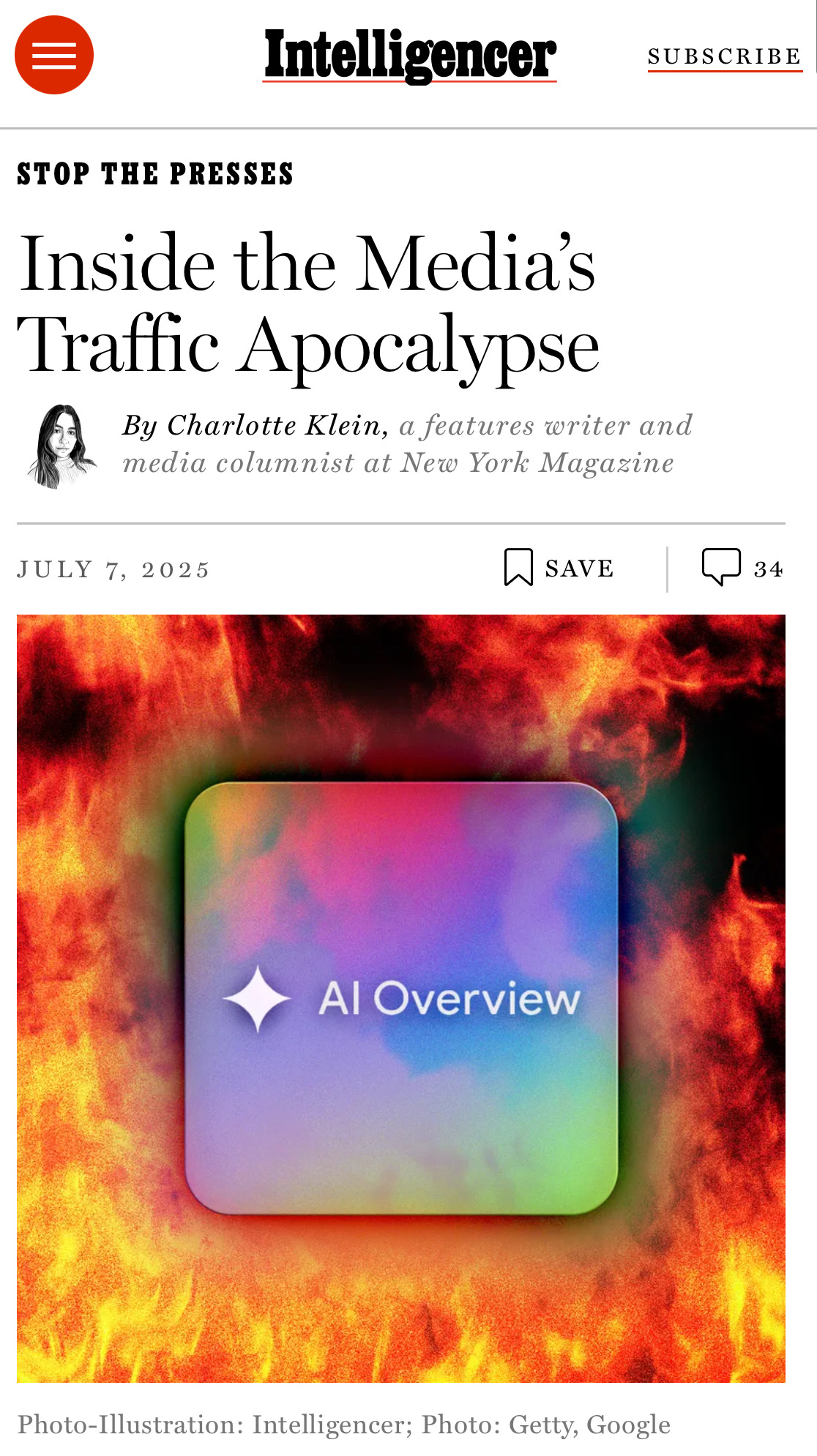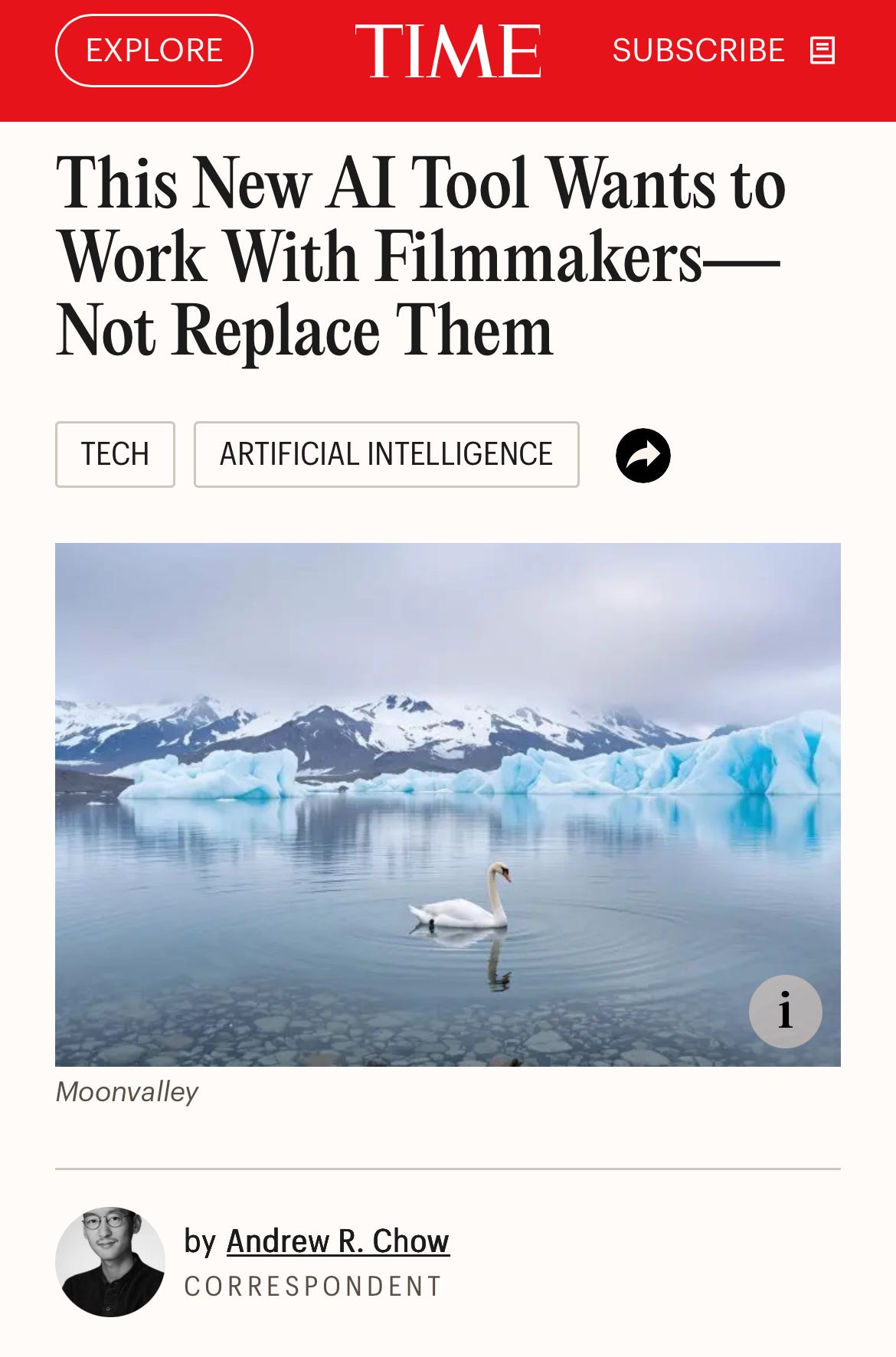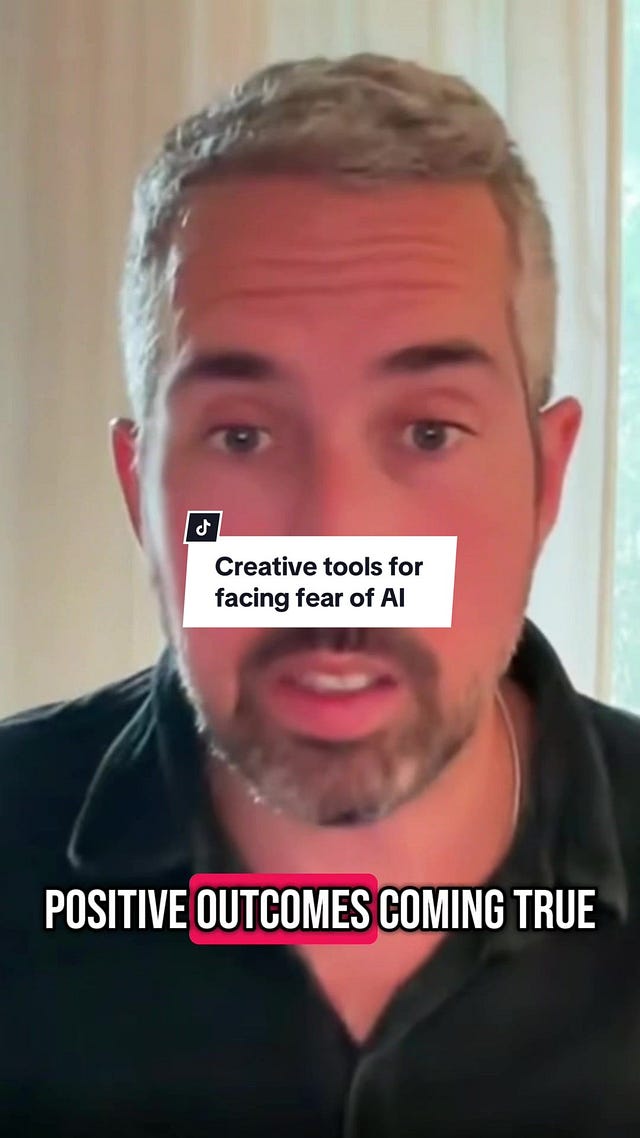Hollywood is learning to stop worrying and love AI, media apocalypse, and new tattoos
And how to embrace fear and connect to the present moment
Hi! I’m Ronit Novak and welcome to the new weekly newsletter from THE GRAIN—featuring five newsworthy items about the future of creativity, the latest from my ongoing interview series, and more grains of thought about the pleasure and peril of AI. Subscribe to THE GRAIN here on Substack along with wherever else you get your podcasts, and follow me on LinkedIn, Instagram and TikTok.
1. Journalism under fire
So what’s working? Original reporting can break through the noise and even overcome, at times, the hurdles that social media companies have created. Publishers now place a premium on content that reinforces their voice and sensibility, whether through a punchy essay or coverage of the New York City mayor’s race. “There was a big mental frame shift a few years ago, which was that rivers of traffic don’t necessarily turn into paying subscribers,” said the magazine editor. “And if those paid subscribers are just seeing mountains of undistinguished crap, their churn is high.”
Inside the media’s traffic apocalypse [New York]
2. Hollywood’s new engagement
Moonvalley was founded by DeepMind researchers and has close ties with the film industry—the company owns AI film studio Asteria Film Co., which was co-founded this year by filmmaker and actress Natasha Lyonne and filmmaker Bryn Mooser. Asteria has been advising Moonvalley on the development of its AI model Marey, which is now available to filmmakers for subscription tiers of $14.99, $34.99, and $149.99 a month. Marey may become AI's main entry point into Hollywood, as it's being developed with the approval of filmmakers and trained on licensed data, theoretically allowing studios to avoid the ethical issues and copyright lawsuits that have plagued the AI industry.
3. Influencing the influencers
Dove back then released a limited-edition collection of soaps, scrubs and deodorants inspired by the trend of infusing bath products with food aromas. Unilever said 52% of the overall purchases came from people who hadn’t bought Dove before, and credited the more than 3.5 billion earned social impressions with the sales success. AI was critical to getting those impressions, said Ryu Yokoi, chief media and marketing capability officer, Unilever North America. The company took over 100 discrete pieces of influencer content such as stills and short clips and used generative AI to remix them into different sizes, formats and lengths to tailor it to different audiences on different social-media platforms, he said.
Unilever uses AI to make Its Dove soap go viral [Wall Street Journal]
4. Indelibly stamped 2025
“There are people that are wondering if technology should make its way into the tattoo industry,” said Blackdot founder Joel Pennington. “But that was what happened when Gutenberg came out with a printing press, and everyone thought that books should be handwritten.”
5. Paying for reconnection
“A lot of my peers understand that nothing is guaranteed really, no matter what you study, so you should just study the thing that matters the most to you,” said Manar Balh, a 25-year-old painting student at Pratt. “AI doesn't feel like a reason to stop making art. If anything, it’s a reason to keep making and insist on making art.”
Podcast taster on TikTok
For more on the pleasure and peril of AI and the future of creativity, subscribe to THE GRAIN wherever you get your podcasts, and follow me for more on LinkedIn, Instagram and TikTok. Questions or comments? ronit@thegrain.ai.













